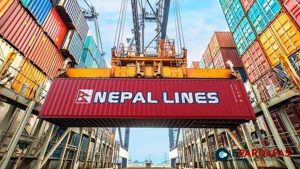
Biden to Propose Tripling Tariffs on Chinese Steel, Aluminum

President Joe Biden is set to unveil a proposal to significantly increase tariffs on steel and aluminum imports from China, a strategic move aimed at garnering support from blue-collar voters ahead of the 2024 election. The announcement is expected during his visit to the United Steelworkers (USW) headquarters in Pittsburgh, Pennsylvania, on Wednesday.
The president will urge the United States Trade Representative (USTR) to consider tripling the existing 301 tariff rate on Chinese steel and aluminum as part of a comprehensive four-year review. Currently, the average tariff on steel and aluminum stands at 7.5 percent under Section 301.
Lael Brainard, director of the White House National Economic Council, emphasized the need to address China’s unfair trade practices, particularly in sectors like steel, where overproduction and government subsidies have led to global market distortion.
President Biden’s move follows in the footsteps of former President Donald Trump, who imposed tariffs of 25 percent on steel and 10 percent on aluminum from China in 2018, citing national security concerns. These tariffs aimed to protect domestic producers from the adverse effects of global overproduction, especially by China, which flooded markets with cheap steel for over a decade.
Upon assuming office, President Biden maintained Trump’s tariffs on Chinese goods, prioritizing the protection of American industries. The USTR has been conducting reviews of Trump-era tariffs to assess their effectiveness and necessity.
Labor unions, including the USW, have urged President Biden to extend tariffs on Chinese imports. Last month, USW called for a trade investigation into China’s unfair practices in maritime, logistics, and shipbuilding sectors, alleging dominance achieved through non-market policies.
In response, the Treasury Department launched an investigation into China’s policies targeting these sectors to achieve market dominance. U.S. Trade Representative Katherine Tai highlighted China’s use of non-market policies to undermine fair competition globally.
Moreover, the Biden administration is engaged in discussions with Mexico to prevent China from bypassing tariffs by routing imports through Mexico into the United States. Chinese export steel prices are considerably lower than U.S. steel prices, posing a significant challenge to domestic producers.
President Biden’s visit to Pittsburgh also coincides with shareholder approval of Nippon Steel’s takeover bid for US Steel. The president has expressed concerns about the deal, emphasizing the importance of maintaining US ownership and control over iconic American industries like steel.
During his campaign event in Scranton, President Biden emphasized his economic agenda’s focus on working-class communities, drawing a contrast with his predecessor’s policies. Pennsylvania, a critical battleground state with 19 electoral votes, holds significant importance for the Biden campaign’s electoral strategy.
President Biden’s three-day tour of Pennsylvania underscores his commitment to engaging with key constituencies and promoting his economic plan ahead of the 2024 election.
- Light Rainfall Forecasted in Koshi and Gandaki Regions Today
- Nepal’s Trade Deficit Surpasses Rs 460 Billion in First Four Months of Fiscal Year
- Indian Army Chief General Upendra Dwivedi Visits Muktinath Temple and Nepal Army’s Western Division Headquarters
- Indian Army Chief Visits Pokhara, Honors Gorkha Veterans and Gallantry Awardees












Comments